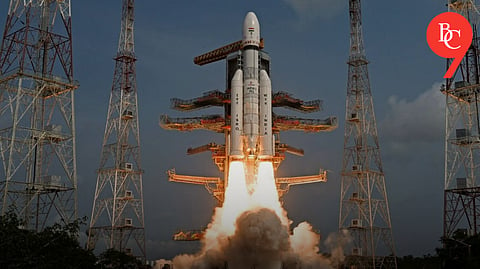

ISRO Chairman V. Narayanan has emphasized the importance of reducing India's reliance on imported electronic components for its space missions. Speaking at the Nano Electronics Roadshow at the Indian Institute of Science (IISc) in Bengaluru, he revealed that while 90% of launch vehicle components are indigenously manufactured, the remaining 10% are still imported, with 90% of those imports being electronic parts. This reliance on foreign-made electronics poses challenges for India's ambitious space programs.
Despite significant progress in indigenization, ISRO continues to rely on imports for critical electronic components, particularly those that are radiation-hardened and meet stringent standards required for space missions. These components are essential for ensuring reliability and longevity in harsh space environments. India lacks a robust electronics manufacturing ecosystem, including advanced semiconductor fabrication facilities, which limits the ability to produce high-quality components domestically. The low demand for specialized space-grade electronics makes it economically unviable for domestic industries to invest in their production.
ISRO has initiated multiple measures to address these challenges:
Cataloging and Prioritising Components: A manifest is being prepared to identify and prioritise electronic parts for indigenization. The goal is to encourage local industries to form consortiums and invest in producing these components.
Collaboration with Industry: ISRO actively collaborates with Indian industries through joint research and development projects. It has also transferred technical know-how to enable local manufacturing of critical subsystems.
Semiconductor Fabrication Initiatives: ISRO has upgraded its fabrication capabilities, such as the development of the Vikram processor, which is crucial for navigation and guidance systems in rockets.
GOCO Model: ISRO is exploring a "Government-Owned, Contractor-Operated" (GOCO) model to establish facilities where private players can manufacture components that are not viable through traditional industry setups.
Chairman Narayanan called on the Ministry of Electronics and Information Technology (MeitY) to prepare a roadmap aimed at reducing electronics imports to less than 10% within five years. He highlighted successful examples, such as the indigenisation of 32 out of 34 sensors used in monitoring rocket parameters, achieved during his tenure as director of ISRO’s Liquid Propulsion Systems Centre (LPSC).
Reducing dependency on imports is critical as ISRO gears up for advanced missions, including heavier rockets, interplanetary explorations, and India's first human spaceflight mission under the Gaganyaan program. A self-reliant electronics ecosystem will not only enhance mission reliability but also reduce costs and foster innovation within the country.
